News
N’Delta Stakeholders Want Transition Of PAP To NDSP
Stakeholders under the auspices of the Niger Delta Peace Initiative (NDPI) have called for the transition of the Presidential Amnesty Programme (PAP) to the Niger Delta Stabilisation Programme (NDSP).
They have also want the appointment of the current Interim Administrator of PAP, Col. Milland Dixon Dikio (rtd) to be retained as head of the NDSP.
The NDPI in a statement by its Secretary-General, Moses Kolomo; and Publicity Secretary, Jacob Aduna; described Dikio as an asset in the stabilisation of the region to avert possible fresh unrest in the future.
They said transiting the programme to NDSP would remove the militancy tag in the Niger Delta associated with PAP and lead to influx of investors to the region.
The stakeholders said the new programme if established by the government, would enable the retention of the services of Dikio, whose capacity in managing PAP would ensure the realisation of NDSP and total transformation of the Niger Delta youths.
They explained that the NDSP should be designed to focus on the young ones between the ages of 12 and 18 years to stop the rising influx of youths within the age brackets into cultism.
The stakeholders said if the rising trend were not curtailed, a new generation of youths would be deceived to begin a fresh arms struggle against the Federal Government.
The statement said: “We don’t want to lose Dikio because this is the first time someone has shown selflessness, capacity and genuine motive in the management of the affairs of any Niger Delta programme.
“Since the amnesty programme is not sustainable, we are calling for the transition of PAP into the Niger Delta Stabilisation Programme (NDSP) with the appointment of Dikio to manage it.
“We know that Dikio has perfect understanding of NDSP. We overheard him mention it in different fora and we think it is the best for the Niger Delta region. So, he is the best person that will handle such intervention. We understood that the NDSP will focus on young ones between the ages of 12 and 18.
“This age bracket will determine the future of the Niger Delta. But with the rate people at this age bracket are joining cultism, we are afraid that if no deliberate intervention like NDSP is rolled out by the Federal Government, the region may witness another round of violent agitation in the nearest future.”
The stakeholders explained to Buhari that Dikio had been a bride to the people of the Niger Delta in the management of PAP, and should be allowed a longer time to stabilise the region.
They further called on all critical stakeholders to give Dikio the maximum support, saying that the PAP boss had a better vision and plans for Niger Delta people.
News
Adesina’s legacy source of pride for Africa — Okonjo-Iweala
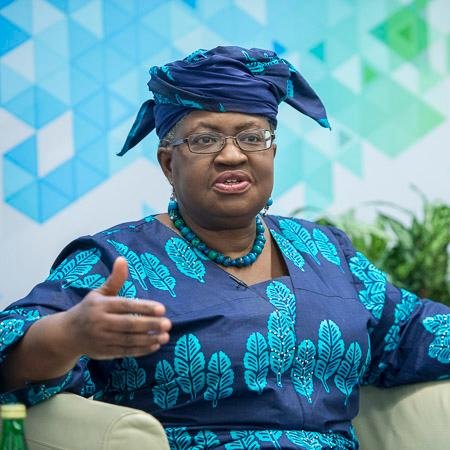
The World Trade Organisation (WTO), has described the legacy of the President of the African Development Bank (AfDB), Dr Akinwumi Adesina, as a source of pride for Nigeria and the African continent.
The Director-General (DG) of the World Trade Organisation, Dr. Ngozi Okonjo-Iweala said this in a statement by the AfDB yesterday.
Okonjo-Iweala made the remark in a video message delivered to AfDB shareholders and delegates at the closing session of the Bank’s Annual Meetings held in Abidjan, Côte d’Ivoire.
The DG commended Adesina for what she called a decade of transformative leadership that significantly elevated the Bank’s standing and contributed meaningfully to Africa’s development agenda.
“President Akinwumi Adesina is leaving behind a strong legacy of leadership and service. Nigerians and all Africans should be proud,” the WTO chief said.
Recalling their time together in the cabinet of former President Goodluck Jonathan, Okonjo-Iweala noted Adesina’s pioneering efforts in agriculture, especially his introduction of the digital wallet system to empower women farmers.
“I challenged him to reach an additional one to two million women farmers, promising performance-based budget support. He delivered, reaching two million more.
“That’s the kind of leader Akin is. He brought uncommon passion to his work and made a difference to the lives of farmers in the country.
“His leadership has significantly raised the profile of the AfDB to a new height of recognition and respectability,” she said.
Okonjo-Iweala, who was Nigeria’s Minister of Finance in 2015, led the campaign that resulted in Adesina’s election as AfDB President.
The WTO boss praised the growth of the AfDB’s capital base under his leadership from 93 billion to 318 billion dollars, describing it as a remarkable achievement.
She also commended Adesina’s “High 5s” agenda, a strategic framework focused on transforming key sectors across the continent, saying that the initiative remains critical to the achievement of Africa’s Agenda 2063.
“With sustained commitment and strategic focus, Africa’s development goals remain achievable,” she said.
The WTO director-general urged African nations to take greater ownership of their development and turn growing international interest in the continent into concrete investment opportunities.
She also lauded the African Investment Forum, a flagship initiative launched by Adesina and eight other partners to bring infrastructure and development projects to bankable stage.
According to her, the initiative complements the WTO’s efforts to promote economic integration and development in Africa.
Okonjo-Iweala further thanked African leaders, shareholders, and the Bank staff for the support given to Adesina throughout his tenure.
She paid a special tribute to Adesina’s wife, Grace, for what she described as her “steadfast support for her husband’s demanding role” over the past 10 years.
Adesina, who assumed office in 2015, is completing his second five-year term as President of the African Development Bank.
News
COAS Supports Early Voting Bill For Military, Security Personnel
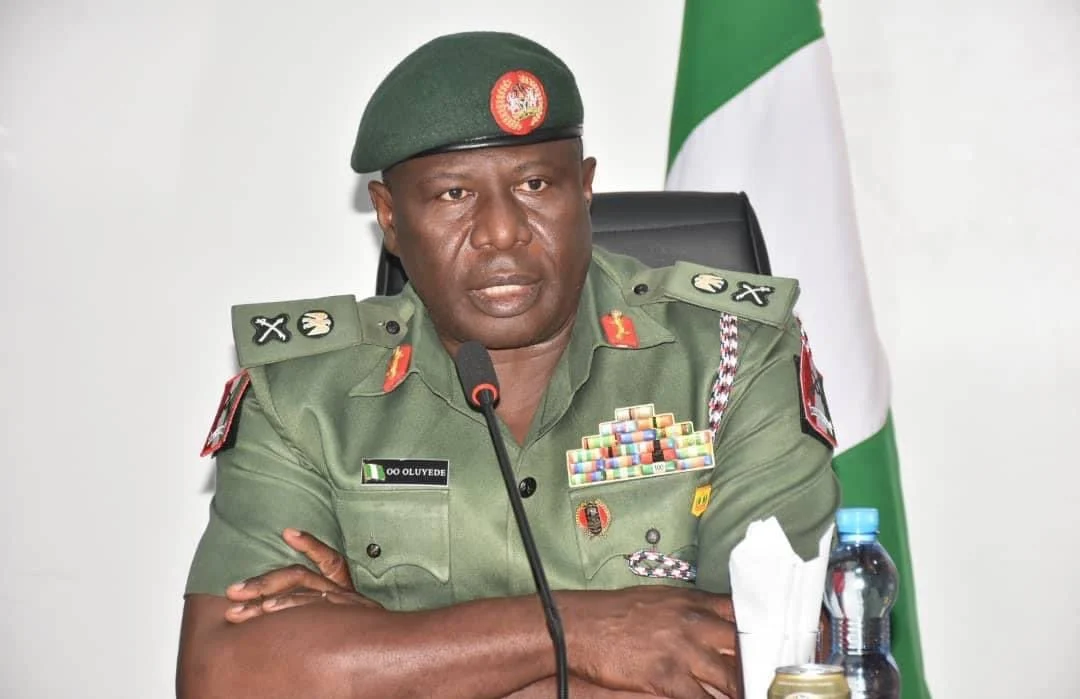
The Chief of Army Staff (COAS), Lt-.Gen. Olufemi Oluyede has declared his support for the early voting bill introduced by the Senate for military and security personnel deployed during elections.
Oluyede expressed the support of the army for the bill at meeting with the Chairman, Senate Committee on Army, Sen. Abdulaziz Yar’Adua (APC-Katsina state) in Abuja, yesterday.
He said that the job of the army on Election Day in collaboration with sister security agencies, was to create an enabling environment for Nigerians to exercise their franchise freely.
According to him, the army has been doing very well in support of the lead agency which is the Police and they have not had time to exercise their own franchise.
“The bill is actually long overdue, it is a laudable effort by the senator and we appreciate you; you have all our support for all the bills.
“As an army, we will support you as much as possible and for the programmes you have high noted, be sure we will be well represented,” he said.
The chief, however, urged the crafters of the legislation to put measures in place to avoid impersonation and to enhance communication among security agencies and other essential workers.
He commended the senator for all the support for the army and the legislative support
Earlier, Yar’Adua said that the aim of the visit was to solicit the support of the army for three bills currently under consideration in the National Assembly.
He said that the bills generally seek to strengthen the army forces and deepen its democratic participation in the country.
“The bills are, the Electoral Act Amendment Bill, the Arm Forces Trust Fund Amendment Bill and the Arm Forces Act Repeal and Reenactment Bill.
“I am here basically to seek your support and the partnership in the passage of the bills,” he said.
The senator said that Electoral Act Amendment Bill was necessary to address the number of eligible Nigerians that are disenfranchised because of essential duties.
According to him, we have close to two million Nigerians who work on elections day from the military, INEC staff, Ad hoc staff, NYSC corps members, security agents, journalists and election observers.
Yar’Adua recalled that during the 2023 general elections, the Nigerian Army deployed 95 per cent of its personnel for election related security issues.
He said that together with the Department of State Security (DSS) the military deployed 93,495 personnel.
The lawmaker said that the police deployed 310,973 personnel, the NYSC deployed 200,000 corps members while the National Security and Civil Defense Corps (NSCDC) deployed 81,000 personnel.
He said the Federal Road Safety Commission (FRSC) deployed 21,000 personnel, the Nigerian Correctional Centre (NCC) deployed 11,336 officers, Economic and Financial Crimes Commission (EFCC) deployed 350 operatives while National Drug Law Enforcement Agency (NDLEA) deployed 9,447 personnel.
Yar’Adua said that when the numbers are put together and added to the number of election observers, it would be enough the determine the outcome of an election.
He said that the wide disenfranchisement raised concerns given the declining voter turnout saying that in 2015, voter turn out was 4.7 per cent, in 2019 it dropped 34.7 per cent and in 2023, 27. 3 per cent.
“To allow early voting for military personnel , it is not only a matter of fairness, it is a necessary step to restore confidence, engage young Nigerians and uphold the principle that says those who defend our democracy should not be excluded from it.
“I wish to encourage the Nigerian Army to collaborate with INEC in identifying eligible personnel to vote,” he said.
On his part, the Coordinator, Centre for Legislative Engagement, YIAGA-Africa, Dr Sam Ogwuche said that the bill was apt and timely.
He said that election is the hallmark of democracy and all Nigerians should be able to vote as it is a civic responsibility.
He said that YIAGA-Africa and many other stakeholders at the forefront of canvassing for increased citizen participation were in support of the bill.
News
FG Launches Initiative To Tackle Insecurity In North-Central Region
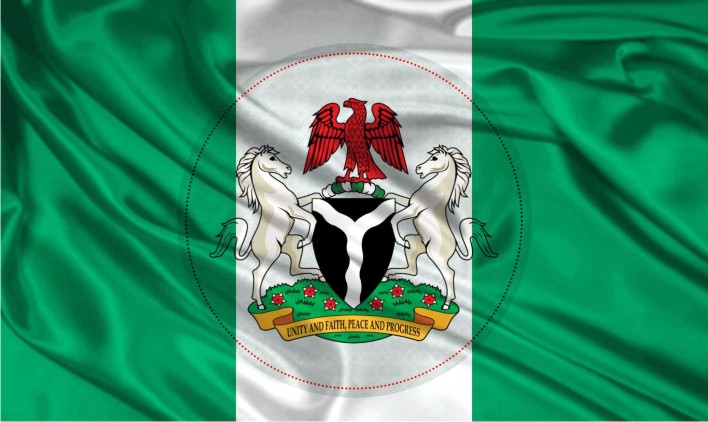
The Federal Government has launched the Presidential Community Engagement Peace Initiative (PCEPI) to tackle insecurity in the North-Central region of the country.
The Tide source reports that the initiative is the brainchild of Mrs Abiodun Essiet, the Senior Special Assistant to the President on Community Engagement in charge of north-central.
Speaking at the event in Jos, yesterday, Essiet said that the initiative aimed at promoting peace and security in states within the region.
“This initiative is an innovative peace network aimed at driving the peace agenda and promoting social cohesion across the region.
“In recent times, these have witnessed troubling violence such as banditry, farmer-herder clashes, insurgency, kidnapping, among others.
“The challenges before the region are more serious and far reaching; the security situation has led to the tragic loss of lives and property.
“This incident demands a proactive and intriguing response, one that places communities at the corner of peace.
“This is why we are gathered here today to launch a new pathway through the Presidential community engagement on peace initiative,” she said
In his remarks, the Gbong Gwom Jos, Da Gyang Buba, called on Nigerians to pass down historical antecedents to the upcoming generation.
He said that such a move would give a better perspective towards addressing the lingering conflicts in the region.
Inaugurating the initiative, Gov. Caleb Mutfwang of Plateau said that the initiative would go a long way to promote peaceful coexistence in the region.
Mutfwang added that the initiative would also empower communities to take the lead in the peace building process of the Tinubu-led administration.
“This initiative is driven by the belief that peace is not only a goal, but a shared responsibility.
“We gather here at a critical moment in our national journey across our communities
“This initiative aims to empower communities to take the lead in conflict resolution and peace building, recognising that sustainable peace must be local.
“It will also build bridges of trust between citizens through shared commitment and dialogue,” he said
-
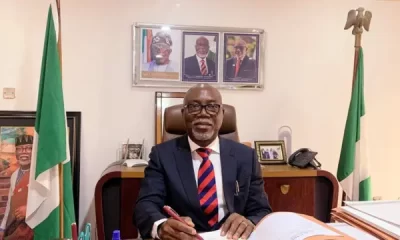
 Politics5 days ago
Politics5 days agoTribunal Dismisses PDP, Others’ Petitions Against Aiyedatiwa’s Election
-

 Politics5 days ago
Politics5 days agoDSS Seeks Court Injunction Against Publicity For Utomi’s Shadow Govt
-
Sports5 days ago
Tinubu Assures Kano Crash Survivors Of Rehabilitation
-
Rivers5 days ago
LG Administrator Commits To Completing Ongoing Projecrs … Urges Students Of The LGA To Be Focused
-
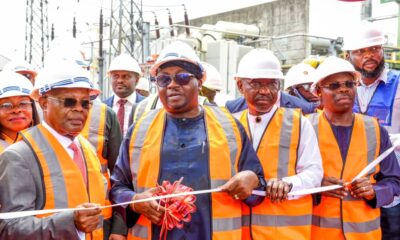
 Featured5 days ago
Featured5 days agoTinubu Commissions Afam 11 Power Plant …Urges Stronger Private Sector Partnership In Power Sector
-
News5 days ago
Former Petroleum Minister, Jibrin Aminu, Dies At 85
-
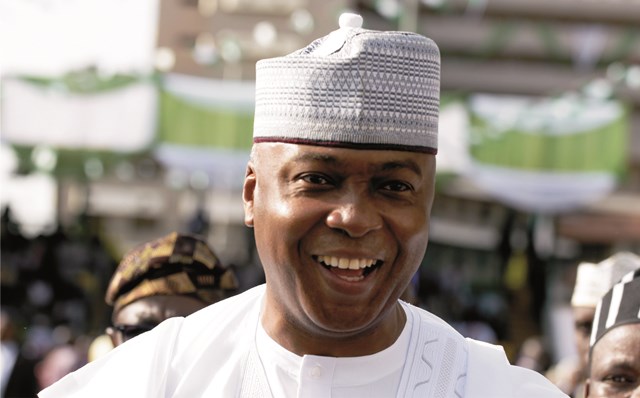
 Politics5 days ago
Politics5 days agoMore Members To Leave PDP – Saraki
-
Sports5 days ago
RSFCA Organises Refresher Seminar For Coaches

